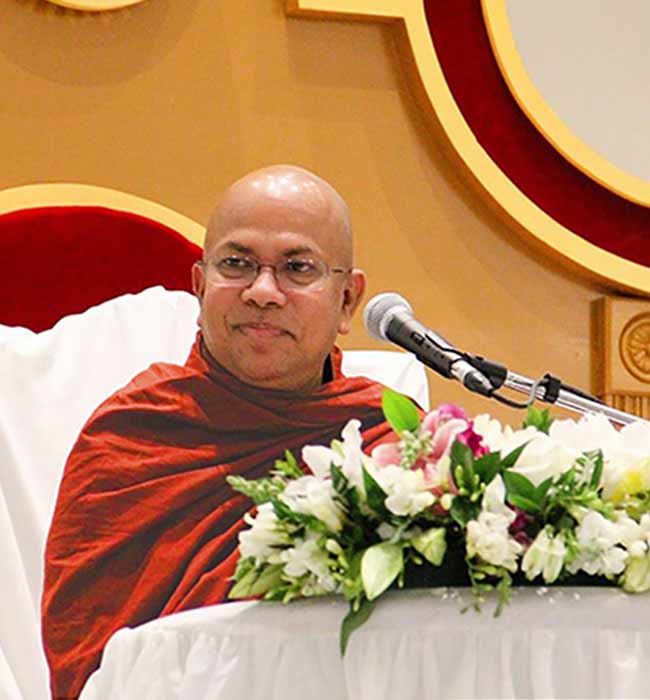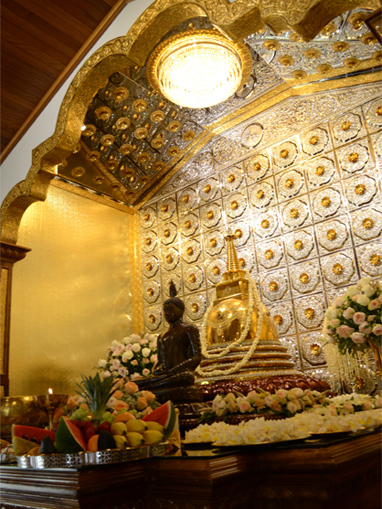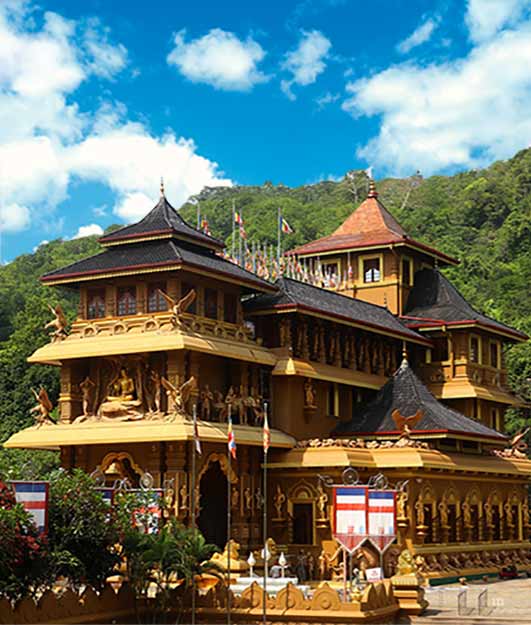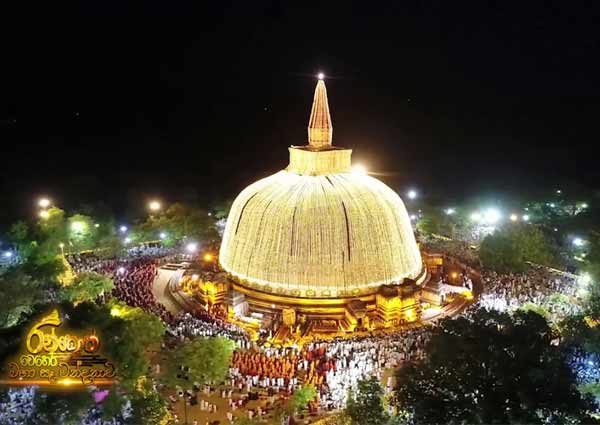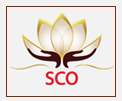Mahamevnawa Buddhist Monastery in Sydney is an international branch of the Mahamevnawa Buddhist Monastery (MBM) in Sri Lanka, a non-profit organisation founded by the Chief Abbott of the Mahamevnawa Monastic Order, Most Venerable Kiribathgoda Gnanananda Thero. The monastery was established with the noble and genuine intention to increase the knowledge of the Supreme Buddha’s teachings amongst the broader community in NSW during an era when the words of the Blessed One are slowly fading away from humanity. Mahamevnawa Sydney, 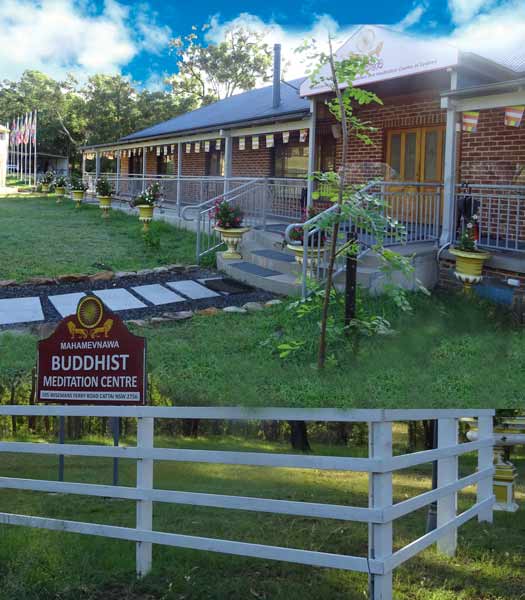 in particular, was founded as the first Mahamevnawa Monastery in Australia on the 10th of December 2007. In 2015 the Monastery relocated to an alluding 20-acre property in Cattai, NSW due to its monastic, picturesque setting, well suited to assist in fulfilling its purpose. The new monastery location was subsequently given the status “Place of Public Worship”.
in particular, was founded as the first Mahamevnawa Monastery in Australia on the 10th of December 2007. In 2015 the Monastery relocated to an alluding 20-acre property in Cattai, NSW due to its monastic, picturesque setting, well suited to assist in fulfilling its purpose. The new monastery location was subsequently given the status “Place of Public Worship”.
Mahamevnawa Buddhist Monastery in Sydney is led by venerable monks who have undergone comprehensive training in Sri Lanka in learning and practising the oldest tradition of Theravada Buddhism, based on the collection of scriptures in the Pali Canon. Through the guidance of competent and experienced monks residing in the monastery, the lay devotees of the Mahamevnawa Buddhist Monastery are privileged to learn and practice the teachings of the Supreme Buddha on mindfulness, meditation, virtue and generosity. The services provided by resident monks and the board of directors are purely voluntary and they are not limited to conducting Dhamma programs, major religious events & community service activities. All monastery services are provided free of cost to the community.
Our Vision
As mentioned before, our key aim is to provide awareness as to the original form of the teachings of the Supreme Buddha to the broader community. The Monastery provides children, youth and the elderly community, effective spiritual support as well as systematic guidance for training and practising the principles of the Dhamma (the teachings of the Supreme Buddha) while emphasising its multifaceted benefits.
In order to achieve this goal, Mahamevnawa Monastery in Sydney has implemented a variety of short term and long-term strategies to promote both regular and special programs. With the original Buddhist teachings as its foundation, it has prioritised developing the fundamental behavioural traits necessary to bring about wholesome mental states needed to reach the end goal of Nibbana. Such traits include but are not limited to loving-kindness, compassion, altruistic joy and equanimity.
Mahamevnawa Buddhist Monastery in Sydney encourages the community to observe and protect the Precepts, the fundamental virtues that lead to the development of noble qualities, social cohesion and the ultimate happiness that comes with the ending of all suffering. The methodical approach adopted in the monastery programs helps participants abandon harmful speech and actions in order to live peacefully and in harmony with others in this diverse, ever-changing society. The Monastery encourages and guides its devotees in understanding the importance of practising the qualities of patience, compassion, generosity, gratitude and respect towards parents, teachers and elders. These qualities lay a solid foundation for the wholesome aptitudes required to live a peaceful and happy life filled with mutual respect.
Some of the services provided free of cost to the community by the Monastery
a) Foster personal and spiritual development of those individuals in the community through teachings of the Supreme Buddha according to the doctrines found in the ancient Pali Canon of Theravada Buddhism. The teachings encourage the community to practice fundamental virtuous behaviours, meditation and develop wisdom to help individuals reach the ultimate happiness that comes with the understanding of the true nature of life.
b) Teach, educate and provide training in meditation to achieve a state of sound mental health, equilibrium and tranquillity. Routine Dhamma programs help the children, the youth and the elderly develop key behavioural traits required to bring about wholesome mental states. These qualities lay a solid foundation for aptitudes required to live a peaceful family life, and respect all in society.
c) Organise regular volunteer-based social and public welfare programs within Australia and worldwide through various charitable, philanthropic, benevolent and humanitarian works such as regular blood donation programs, Australia Day cleanup activities, helping the needy through material donations at hospitals and meals for disabled inmates of care centres without any discrimination of race, age, religion or any other criterion.
d) Provide education to uplift the spiritual knowledge and experiences of children through the Sunday Dhamma School (for ages 6 – 15) & children’s Dhamma sessions with the aim of nurturing strong wholesome character traits in children such as, patience, compassion and generosity based on the observance of five Precepts. A vital element of implementing programs and events for the young generation is the systematic cultivation of exceptional mental states such as loving-kindness, altruistic joy and equanimity.
e) Help children and the youth learn and converse in the Sinhala language, in order to allow a stronger connection with the language and culture of their
ancestors through the Sinhala language school of the Company and specially organised Sri Lankan cultural programs. The school and programs will help establish a wider intercultural appreciation, cross-cultural awareness and social cohesion, preventing intergenerational conflict amongst culturally and linguistically diverse communities.
f) Provide blessings and spiritual advice to the congregation, counselling for youth, adults and families, visiting retirement villages and hospitals of elderly devotees with the aim of relieving their mental and physical concerns through the chanting of blessings, counselling and meditation practices.
g) Maintain a library of books written in English and Sinhalese on the teachings and practices of Theravada Buddhism, Sri Lankan history and Sinhalese cultural practices in order to encourage self-education.
h) Provide facilities for devotees to watch and listen to the ‘Shraddha TV & Radio’ broadcast of the Mahamevnawa Buddhist Monastery in Sri Lanka and co-contribute to programs run on these not-for-profit media to further uplift the spiritual and cultural knowledge of its worldwide audience.

